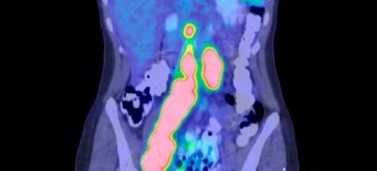
Something as small as seeing pictures of others being loved and cared for silences our brain’s response to threat, a new study has found. The amygdalae, listed in the Gray’s Anatomy textbook as the nucleus amygdalæ, are a group of nuclei in the brain involved in the processing of memory, decision-making, and emotional reactions. The amygdala is also considered to be the core of the “threat monitor” in humans. This study showed that when individuals are briefly presented pictures of others receiving emotional support and affection, the amygdala doesn’t respond to threats, or it gives out a less intense response. This means that when we are reminded of being loved and cared for, or even when we see that others are loved and cared for, we tend to not feel threatened anymore. This has important potential implications, for example in people staying in abusive relationships, or in gangs where members feel like they’re cared for.
Being shown pictures of others being loved and cared for reduces the brain's response to threat, new research from the University of Exeter has found.
The study discovered that when individuals are briefly presented pictures of others receiving emotional support and affection, the brain's threat monitor, the amygdala (fight or flight), subsequently does not respond to images showing threatening facial expressions or words. This occurred even if the person was not paying attention to the content of the first pictures.
The study, published recently in the journal Social, Cognitive and Affective Neuroscience, suggests that being reminded of being loved and cared for dampens the threat response and may allow more effective functioning during, and activation of soothing resources after, stressful situations. This was particularly true for more anxious individuals.
Previously, research has shown that brain responses to pain are reduced by similar reminders of being loved and cared for, but this …
A number of mental health conditions such as posttraumatic stress disorder (PTSD) are characterized by hypervigilance to threatening information, which is associated with excessive negative emotional responses, amygdala activation and a restricted ability to regulate these emotions and self-sooth. These new research findings may help to explain why, for example, successful recovery from psychological trauma is highly associated with levels of perceived social support individuals receive. We are now building on these findings to refine existing treatments for PTSD to boost feelings of being safe and supported in order to improve coping with traumatic memories.
Following these results, researchers at the University of Exeter are also running research studies measuring body (heart rate, sweat response) and brain (electrical brain waves measured by EEG) responses to understand related mechanisms in different populations such as highly self-critical individuals, individuals with depression and survivors of psychological trauma such as severe car accidents, assaults and natural disasters.
Previous studies have shown that we feel less pain when we are reminded we are loved, but this is the first study to show we also feel less threatened.
Now, researchers want to study other bodily reactions (heart rate, sweat response) to better understand the relationship between how we feel and how our body reacts.
Please Read this Article at NaturalBlaze.com





Leave a Reply